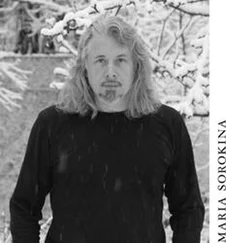Standing pure before God is like being undressed, naked before him. Oh, if silence meant only not to be speaking, not to be expressing our thoughts, it would be such a small matter, something everyone already does when seeking to conceal their thoughts. But it is more: we need to still our thoughts. ‘Retaining awareness while invoking Jesus Christ entails looking constantly into the depths of the heart and ceaselessly keeping thought silenced; even, I would say, trying to be empty of intentions that seem good, or of any other intentions, lest felonious thoughts be lurking beneath them.’ 15As they assuredly will be, ready to rob us the minute we stray out of that pure mindfulness in which even our own thoughts surprise us and seem to belong to somebody else. The value of intentions is only that they, too, may be presented, offered, exposed.
Moving away from thoughts and intentions to pure mindfulness is also the teaching of an old school of philosophy (νοῦς). How is it that in our time it has survived only in the form of unceasing prayer, and virtually only in the monasteries at that? That is cause to be grateful to the Church and something that makes the Church indispensable. Is this discipline not now being diminished by being separated from the totality of human experience, the experience of other languages of faith, by becoming specialized and isolated from philosophy and the experience of poetry and music? And similarly, is secular culture not also diminished to the extent that it lacks understanding of the school of unceasing prayer, has not studied but has instead squandered it? It is as if the storehouses and their watchmen were in different places: the storehouses full of fabulous riches but unlocked; the guard incorruptible, competent and vigilant, only nowhere near the storehouses.
How are we to return the storehouses once more to their guards, and return the guards to their storehouses? Neither prayer nor faith can be perfect if the person praying has first decided to be this way or that, and only then to turn to God. There was good reason why this first, and perhaps most important, thesis of the Pilgrim was excised by those who edited him. Unfortunately, the specialization of faith, the transformation of religion into a profession, is a fact. Ecumenism, stripped down to its essence, would do well to remember that the real Church, the Church of faith in the divine, has existed not for 2,000 years, but since the days of Abel and, according to Bernhard Welte, we are in eucharistic communion with the cave dwellers of the Mount of Olives near Cologne.
The natural man arrives naturally at the knowledge of God. And, therefore, there is not, and never has been, any people, any barbarous tribe, without some knowledge of God. As a result of this knowledge the most savage islander, without any impulse from outside, involuntarily raises his gaze to heaven, falls on his knees, breathes out a sigh which he does not understand, necessary as it is…. Universally the essence or the soul of every religion consists in secret prayer. 16 (The Way of a Pilgrim, p. 237)
Faith is the same in every paganism; religion and devout mindfulness are one.
A human being’s most important job is to be mindful. Work? ‘Every hour and every moment let us with utmost diligence guard our heart against all manner of intentions dimming the spiritual glass in which it is meet that Jesus Christ alone should be impressed and imprinted.’ 17Against all manner of intentions: that is, we must fall again and again.
Phenomenology is the showing of what is. To whom? To whomsoever or whatever is manifested, to the extent that they are manifested. Beyond that showing, we should have nothing in mind. Husserl’s phenomenology is pure mindfulness as novelty. A further interpretation and application, in passing, on the value of philosophy: only from this pure standing in the Presence can there arise not power but emptiness and a measure of amazement, of wonder, from which alone one can bypass all traditions and find an absolute starting point. ‘Pray, and do not labour much to conquer your passions by your own strength. Prayer will destroy them in you’ (230). And further,
The man who lives in silent solitude is not only not living in a state of inactivity and idleness; he is in the highest degree active, even more than the one who takes part in the life of society. He untiringly acts according to his highest rational nature; he is on guard; he ponders; he keeps his eye upon the state and progress of his moral existence. (248)
There is a sober awareness that we have no power over the forest, the wolf, and the double. With our body, our heart, our food, merely by eating every day, we belong to the forest, the world’s matter. Presenting ourselves in unceasing prayer just as we are, we present ourselves as creatures of the forest, our own forest. Like the forest, we are created, but as creatures presenting ourselves, as pure mindfulness, as phenomenologists, we are apart from the forest: we are divine. At such a time, what we are doing with the forest is what God wanted. Of course, in order to find out what at that time we are doing, we must try to see what, in religion, we may be.
Why does mindfulness release wonder? Because, of course, it is simply wondrous that I, mindful and observing, am somehow related to my neighbour here, my body that is here and nowhere else, standing and doing what it is doing, breathing and thinking.
Together with my neighbour, my body, I am immediately back in contact with the global forest it is growing into, as are other bodies with which every body is linked in essentially the same way as the parts of one body are linked: in the way bodies are linked to each other, through kinship, relationships, breathing the same air, being irradiated by the same rays, visible or invisible. There is nothing fundamentally different from the way the head is linked to, say, the hand. In St Paul’s comment that the community is like a body, in his addressing it as ‘brothers and sisters’, there is nothing in the least metaphorical. If this kinship has been rejected by the mind, forgotten as an ideal, it is not the kinship we need to worry about. It is not going anywhere, it will simply carry on being what it is. Perhaps, though, we need to be worrying about the mind, what it is and whether, perhaps, it has not gone a bit off the rails and might need to be put right in some essential.
That is why it is not self-centred to seek redemption for oneself. Redemption of one’s neighbour is, first of all, redemption of one’s body, which, through its universal interconnectedness, is at once salvation for all bodies. Any movement, through interconnectedness, moves all matter.
Redemption, that is, putting the mind right, begins with fear, with horror, and that is another merit of a remarkable note passed to me at the lecture on 9 September, which I read too hastily and which deserves better: ‘I have set the Lord always before me: because he is at my right hand, I shall not be moved.’ 18Fear of the Lord is the beginning of wisdom. But is always setting God before us (not imagining him), the seeing of him before us that the prophet David speaks of … is that not something reserved exclusively for the souls and minds of believers rather than for just anyone? For the believer, this is the way out of the forest. God is always before you. The forest, dark, terrifying, dismal, is the condition of any soul, with or without faith. (The soul, according to Tertullian, is ‘in its very nature Christian.’) ‘I entrusted myself to the will of God. My peace of mind came back to me and I was in good spirits again’ (46). Theology teaches us how to find our way out of the forest, and it does so on the basis of past experience. There is no universally accepted image of God or of faith in him (and any imagining of God is idolatry). Imagination is a temptation, when the individual forces himself to picture the heart, the kidneys, veins and fat (things he considers necessary); it is a different matter when in a mysterious way something quite else is revealed to him. He does not know why, and perhaps until his dying day he never will.
Читать дальше












